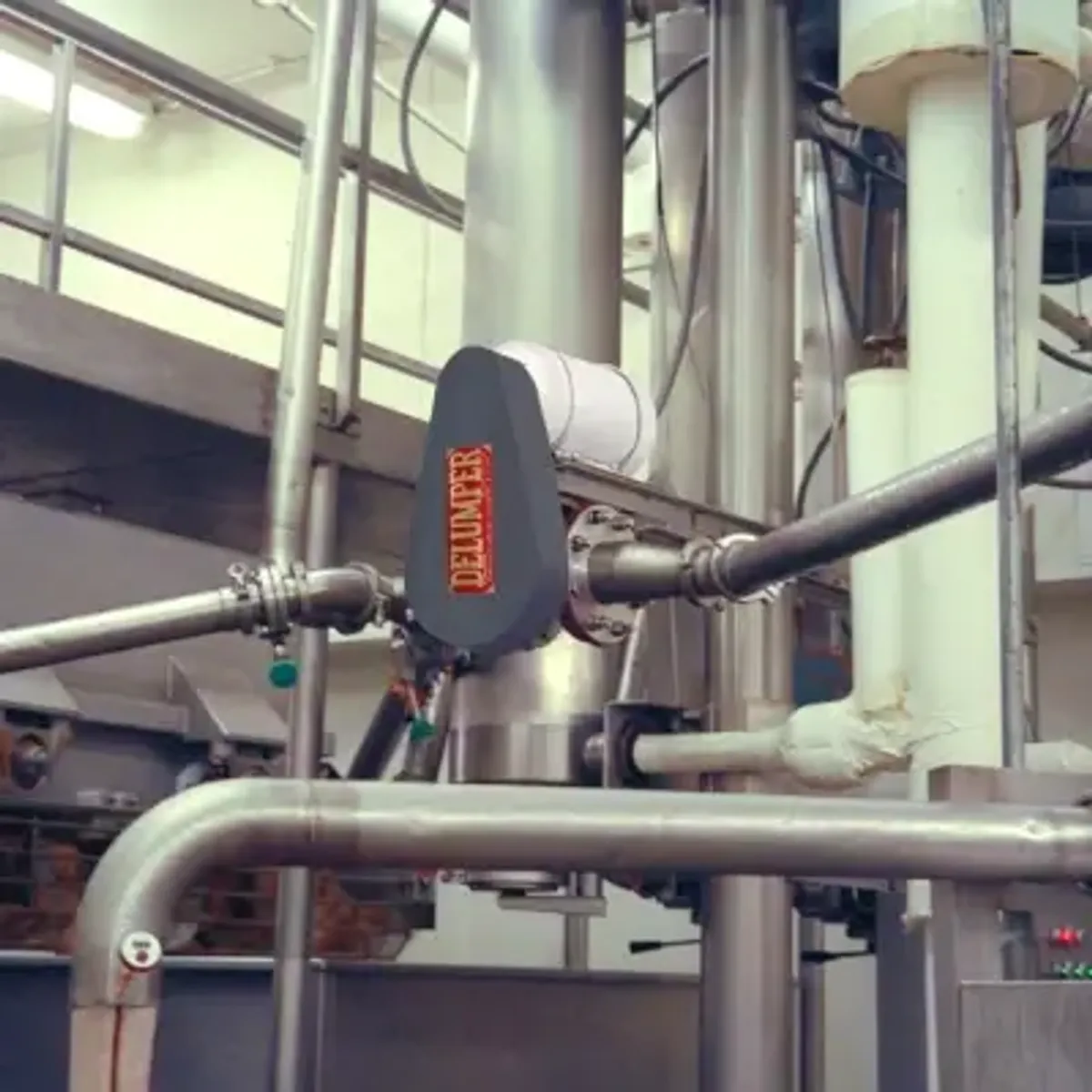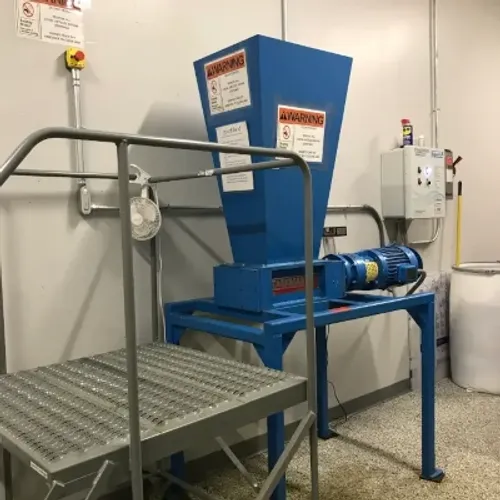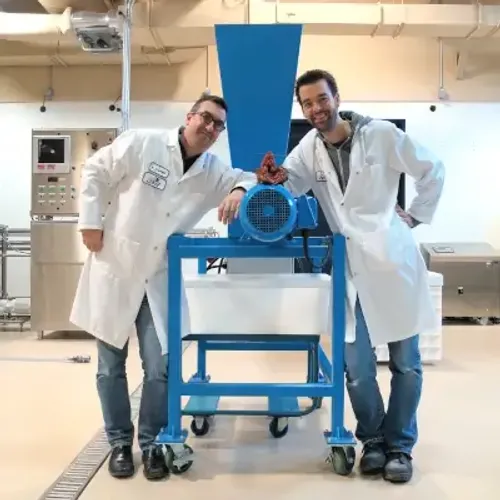A leading mineral mining and processing plant recently turned to Franklin Miller for help in solving a long-standing problem. The facility, located in Wyoming , is a major producer of soda ash, the common name for sodium carbonate. Derived from trona ore, the soda ash has significant economic importance because of its application in manufacturing glass, paper, chemicals, detergents and other products.
Trona ore is converted to soda ash in a multi-step process. The ore is heated in a kiln and is transformed into sodium carbonate. Water is added, and the solution is filtered to remove impurities. The liquid is then boiled off to form crystals,which are separated in a centrifuge and dried. While the conversion process appears to be straightforward, it very often was complicated by a mineral called eitelite. During production, this scale-like material would form on the walls of the dissolver tanks. Thermal shifts would cause the eitelite to flake off and large chunks would clog small pumps and pipelines, impeding production and reducing process efficiency.
Trona ore is converted to soda ash in a multi-step process. The ore is heated in a kiln and is transformed into sodium carbonate. Water is added, and the solution is filtered to remove impurities. The liquid is then boiled off to form crystals,which are separated in a centrifuge and dried. While the conversion process appears to be straightforward, it very often was complicated by a mineral called eitelite. During production, this scale-like material would form on the walls of the dissolver tanks. Thermal shifts would cause the eitelite to flake off and large chunks would clog small pumps and pipelines, impeding production and reducing process efficiency.
For years, the company had looked for a solution, testing many devices and units without success. The application is complicated by the severe abrasive nature of the material. Then, Franklin Miller was asked to assess the entire operation and they recommended a powerful in-line processor that would quickly pulverize the difficult agglomerate lumps. A PIPELINE DELUMPER® was installed and the processor was put through a testing program that lasted a year. The company was so pleased with the unit’s performance that they subsequently purchased and installed three more units.
The PIPELINE DELUMPER® in-line processor crushes, disperses and suspends tough solids in fully enclosed pipe systems. This unit eliminates blockages, works the stream to free flow and prevents damage to pumps and other equipment. It is suitable for wet, dry, pressure or gravity systems. In applications worldwide, the PIPELINE DELUMPER® has demonstrated its processing and cost-effective benefits. The ultra-compact, straight through PIPELINE DELUMPER is designed for easy installation. This fluid-tight pressure rated unit has the full throughput capacity of the pipe to which it is connected. Its working principle employs rugged impeller teeth passing through a heavy bar grating to reduce the size of the product. These teeth completely clear the slots of the bar grating and at the same time clean the entire pipe cross section area.
The unit can be supplied with optional hardfaced cutters. A heavy fused coating of chrome boride is applied in a nickle-based substrate to form a solid fused surface with a Rockwell C in excess of Rc 65. This provides extended life in abrasive service.
Franklin Miller offers a full line of crushers to handle a wide variety of applications.



